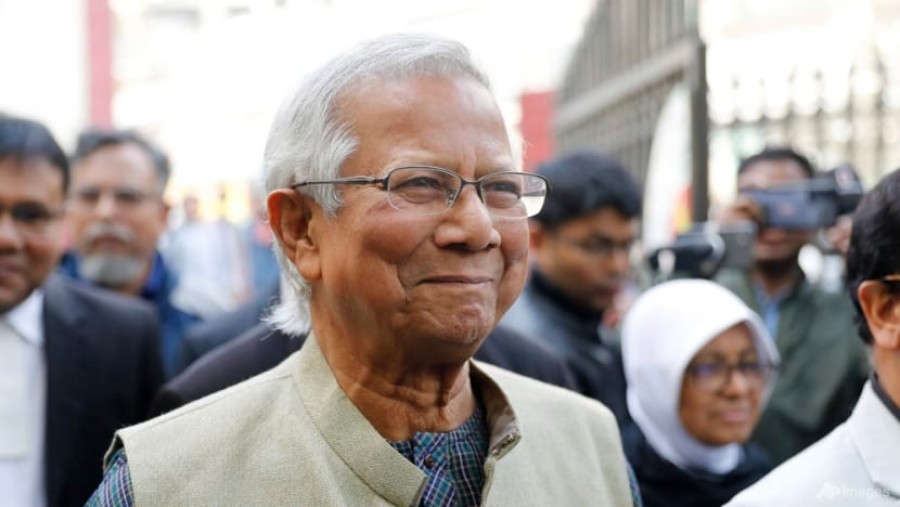Bangladesh Nobel Winner Yunus to Lead Interim Government

Bangladesh's Nobel-winning microfinance pioneer Muhammad Yunus will lead an interim government after mass protests forced longtime prime minister Sheikh Hasina to flee, the presidency announced on Wednesday (Aug 7).
The appointment came quickly after student leaders called on the 84-year-old Yunus - credited with lifting millions out of poverty in the South Asian country - to lead.
The decision was made in a meeting with President Mohammed Shahabuddin, the heads of the army, navy and air force, and student leaders. "(They) decided to form an interim government with Professor Dr Muhammad Yunus as its chief," Shahabuddin's office said in a statement.
"The country needs to convene international capital. It needs to demonstrate trust - trust in the competency and trust in the good faith of people running the place," he added.
Yunus will have the title of chief advisor, according to Haid Islam, one of the leaders of Students Against Discrimination who participated in the meeting.
Shahabuddin agreed that the interim government "will be formed within the shortest time" possible, Islam told reporters.
Islam described the meeting as "fruitful".
However, there were few other details about the planned government, including the role of the military.
Yunus, who is currently in Europe, told AFP on Tuesday he was willing to lead the interim government.
"If action is needed in Bangladesh, for my country and for the courage of my people, then I will take it," he said in a statement, also calling for free elections.
The first major step Yunus should take is to bring back normalcy in the country, said Amit Ranjan, research fellow at the National University of Singapore’s Institute of South Asian Studies.
"Unless peace and law and order are established, it will be very difficult for any government to run the country," he told CNA's Asia Now.
"His first priority should be to restore peace and silence the protesters."
DEADLY CRACKDOWN
Hasina, 76, who had been in power since 2009, resigned on Monday as hundreds of thousands of people flooded the streets of Dhaka demanding she stand down.
Monday's events were the culmination of more than a month of unrest, which began as protests against a plan for quotas in government jobs but morphed into an anti-Hasina movement.
Hasina, who was accused of rigging January elections and widespread human rights abuses, deployed security forces to quash the protests.
Hundreds of people were killed in the crackdown, but the military turned against Hasina on the weekend and she was forced to flee on a helicopter to neighbouring India.
Army chief General Waker-Uz-Zaman said on Sunday it was "time to stop the violence".
The military has since acceded to a range of other demands from the student leaders, aside from Yunus's appointment.
The president dissolved parliament on Tuesday, another demand of the student leaders and the major opposition Bangladesh National Party (BNP).
The head of the police force, which protesters have blamed for leading Hasina's crackdown, was sacked on Tuesday, the president's office said in the statement announcing Yunus as leader.
Ex-prime minister and BNP chairperson Khaleda Zia, 78, was also released from years of house arrest, a presidential statement and her party said.
And the military reshuffled several generals, demoting some seen as close to Hasina, and sacking Ziaul Ahsan, a commander of the feared Rapid Action Battalion paramilitary force.
Tags :
Previous Story
- Crisis in Bangladesh Boosts Shares of Indian Textile...
- Textile Industry in Bangladesh - A Flourishing Hub...
- Bangladesh Textiles: A Rising Industry Shaping the Global...
- Global polyester fiber market share and scopes for...
- USDA launches $27m trade facilitation project for Bangladesh
- ‘Bangladesh has opportunity to remain a force in...
- Bangladesh, Hungary discusses ways to increase trades
- Apparel export to EU awaits severe competition: experts